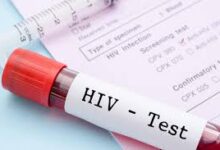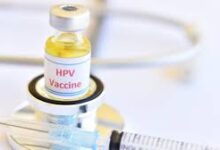
In many developed countries, giving antibiotics to children — especially infants — is now considered a last resort. Pediatricians in Europe or North America often recommend watchful waiting, symptomatic care, or diagnostic testing before prescribing any antimicrobial drugs. Parents are educated about the long-term risks of overuse, and most pharmacies are strictly regulated. In contrast, in Pakistan, even a one-month-old baby is commonly given antibiotics for routine fever or diarrhea often without prescription or proper medical guidance.
This gap is not just about policy. It reflects broader differences in healthcare awareness, governance, and culture and it has severe implications for the future of public health in Pakistan.
Internationally, the medical consensus is shifting toward caution. The UK’s National Health Service (NHS) and the American Academy of Pediatrics have developed clear guidelines on delayed prescribing, especially for viral infections that don’t respond to antibiotics. Scandinavian countries have some of the world’s lowest antibiotic usage rates in children thanks to strong regulation, high health literacy, and digital monitoring systems that flag over-prescription.
In Pakistan, however, such frameworks are either absent or ignored. A pediatrician at a government hospital in southern Punjab revealed that antibiotics are often given based on “past experience” rather than clinical tests. In both public and private setups, physicians face pressure from anxious parents who demand “strong medicine” for quick recovery even when it’s unnecessary. Many local doctors admit it’s easier to prescribe than to explain.
Moreover, the unchecked over-the-counter sale of antibiotics — including powerful third-generation drugs allows even unlicensed dispensers and shopkeepers to act as decision-makers in a child’s treatment. A mother in Swabi, KP, shared how she gives her infant half a tablet of Azithromycin “if the fever doesn’t go in a day.” There is little awareness that these practices could harm the child’s gut microbiome, weaken immunity, and set the stage for Antimicrobial Resistance (AMR) a global health crisis already knocking at Pakistan’s doors.
According to a 2022 report in The Lancet Regional Health Southeast Asia, Pakistan ranks among the top countries in antibiotic consumption, with rising resistance to Ciprofloxacin and Cefixime. Yet most of this usage goes unrecorded, especially in rural communities. Children are growing up with overexposure to antibiotics, reducing the effectiveness of life-saving drugs at an early age. It’s a dangerous cycle: resistance leads to treatment failure, which leads to even stronger drug use pushing public health deeper into crisis.
International experts have sounded the alarm. A joint report by the World Health Organization (WHO) and UNICEF emphasizes reducing unnecessary antibiotic use in children as one of the key targets in the global fight against AMR. Countries like Thailand have successfully piloted school-based health education programs to reduce parental demand for antibiotics, while Estonia introduced prescription-only digital pharmacy systems that automatically flag misuse.
What can Pakistan learn?
First, national awareness campaigns must directly target caregivers and parents, especially in rural and low-income areas. It’s not enough to pass regulations there must be a cultural shift in how families understand illness, medication, and long-term health risks.
Second, pharmacy regulation must be enforced at the district level, especially where pediatric medicine is being sold without prescriptions. Field data collected through RTI requests in Rajanpur and Bahawalnagar reveals that more than 40% of outlets operate without a licensed pharmacist and yet continue to sell antibiotics for infants.
Third, doctors and paramedics must receive updated training and support to push back against unnecessary antibiotic use. This includes basic diagnostic kits in rural clinics and accountability in prescriptions. Without this, pediatric care will remain reactive and risky.
If we fail to course-correct now, today’s babies may grow into a generation for whom routine infections have no cure. Learning from countries that are taking responsible, science-based steps to protect their children’s future is not optional — it’s necessary for survival.






